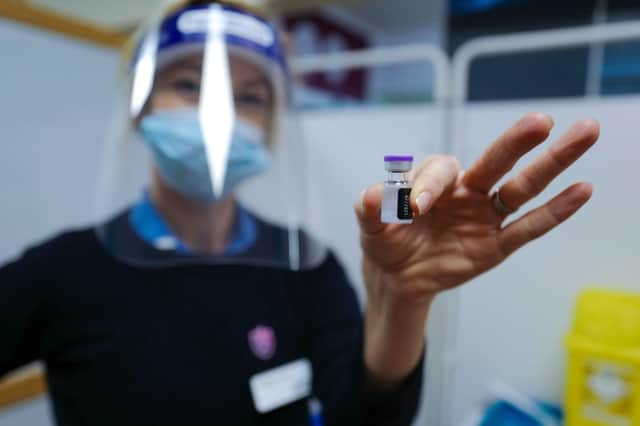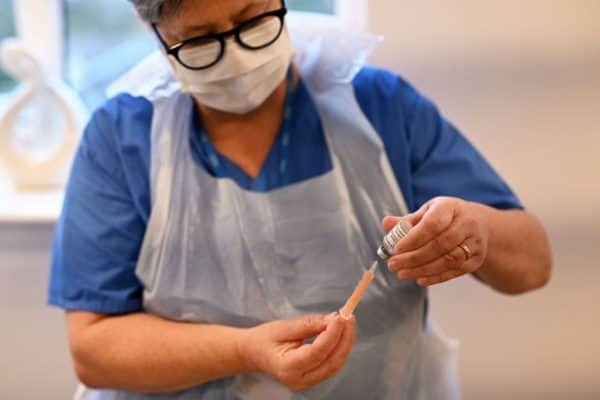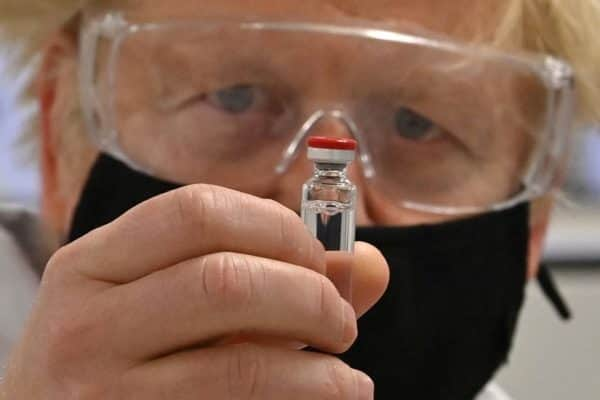This is why you can’t choose which Covid vaccine you receive


In a show of support for the Oxford/AstraZeneca jab – which more than a dozen European countries, including Ireland, have stopped using – the Prime Minister has said he will be receiving his soon.
Boris Johnson told MPs: “I finally got news that I’m going to have my own jab very shortly, [and] I’m pleased to discover it will certainly be Oxford/AstraZeneca that I will be having.”
Advertisement
Hide AdAdvertisement
Hide AdSweden and Latvia became the latest nations to follow countries including Germany, France, Italy, and Spain in temporarily suspending AstraZeneca jabs this week, in light of a small number of reports of bleeding, blood clots and low blood platelet counts.
Experts continue to stress the vaccine remains safe and effective for use, and that there is no evidence at this time of a link between the vaccine and the development of blood clots.
But do you have a choice in the matter? Can you pick and choose which of the currently approved vaccines you are injected with if you have worries about a particular one?
Here is everything you need to know about it.
Can you choose which vaccine to have?
No.
The Joint Committee on Vaccination and Immunisation has not advised a preference between the Pfizer-BioNTech, the Oxford-AstraZeneca or any other vaccines in the UK population, stating that "both give very high protection against severe disease... and both vaccines have good safety profiles".
Advertisement
Hide AdAdvertisement
Hide AdThe UK’s vaccine programme is offering vaccines in line with the supply of vaccines, and so the option to choose is not available say the NHS.
In certain circumstances, you may be advised to have a certain vaccine by a medical professional, but this is not common, and will be discussed with you fully before hand; you cannot request a certain vaccine for yourself.
Earlier this week, Northern Ireland’s Health Minister made clear people cannot pick and choose what type of Covid-19 vaccine they receive as he moved to provide reassurance on the safety of the AstraZeneca jab.
Robin Swann highlighted that the UK’s Medicines and Healthcare products Regulatory Agency (MHRA) had found no evidence of a link between the vaccine and reported cases of blood clots in some European countries.
Advertisement
Hide AdAdvertisement
Hide AdAsked whether people who had concerns about the AstraZeneca jab could select a different type of vaccine, Swann said, “there’s no opportunity to pick and choose vaccines within our current programme.”
Can you have two different vaccines?
You will have to have two doses of the same vaccine.
Why would people want to choose?


The World Health Organisation (WHO) is urging countries to continue using the AstraZeneca Covid-19 vaccine as global medical leaders meet to discuss reports of blood clots.
Dr Soumya Swaminathan, WHO’s chief scientist, told a media briefing “we do not want people to panic”, as she said no association has been found so far between blood clots and Covid-19 vaccines.
She said the rates at which blood clots have occurred in people who received the AstraZeneca vaccine “are in fact less than what you would expect in the general population”.
Advertisement
Hide AdAdvertisement
Hide AdProfessor Anthony Harnden, deputy chairman of the Joint Committee on Vaccination and Immunisation, said there was “no demonstrable difference” in the number of blood clots seen between the general population and the 11 million who have so far received the Oxford/AstraZeneca jab to date.
He told BBC Breakfast “because we’re immunising so many people, we are bound to see blood clots at the same time as the vaccination.”
“That’s not because they are due to the vaccination. That’s because they occur naturally in the population. We have to remember that there are 3,000 blood clots a month on average in the general population.”
“One ought to also remember that Covid causes blood clots,” added Prof Harnden. “So, the risks of not having the Covid vaccination far outweigh the risks from the vaccinations.”
Do I have to get the vaccine?


Advertisement
Hide AdAdvertisement
Hide AdOf course, taking up the offer of a Covid-19 vaccine remains voluntary, and there are currently no plans to make being immunised.
But members of the public are being urged to accept offers of a jab as soon as they can, and being reassured that all vaccines available are safe, and have been developed under the usual strict, regulatory practices.
Peter Openshaw, professor of experimental medicine at Imperial College London, said the decision to pause rollout of the Oxford/AstraZeneca jab could be a “disaster” for Covid-19 vaccine uptake in Europe.
Asked what he would say to those in the UK who are booked to receive an Oxford jab, Prof Openshaw told BBC Radio 4’s Today programme: “I really wouldn’t be worried at the present time.
Advertisement
Hide AdAdvertisement
Hide Ad“I think it is very clear that the benefits of being vaccinated at the moment so far outweigh the possible concern over this rather rare type of blood clot,” he added. “I think it is a disaster for the vaccination uptake in Europe, which is already on slightly unsteady ground in some countries.”
A version of this article originally appeared on our sister title, the Yorkshire Evening Post